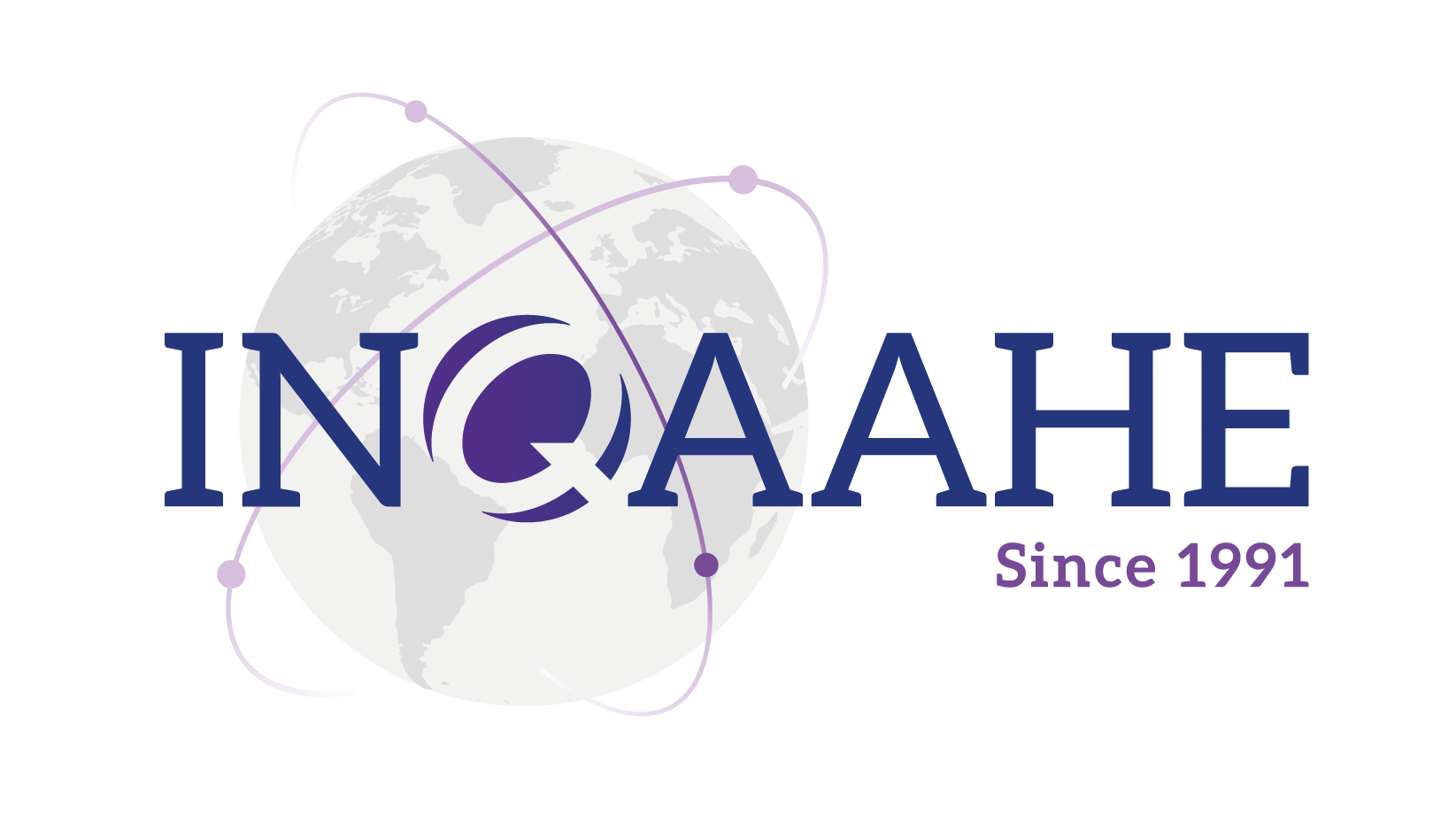INQAAHE Forum 2022
Sustainable Quality Assurance: Optimizing Synergies between Artificial and Human Intelligence
June 6, 2022 at 09:30 Mexico City time
Common approaches to QA of cross-border higher education: future perspectives.
Summary:
Background
Cross-border higher education (CBHE) has been a growing phenomenon since the 1990s. For the main sending countries and their higher education providers CBHE has become a major source of revenue and for many receiving countries CBHE is a means to overcome a lack of skilled labour force. Today, 305 international branch campuses - the type of CBHE that attracts most attention - are operated by higher education providers from 34 sending countries in 83 receiving countries.
As old as CBHE is the debate about the quality of CBHE and the risk of low-quality provision. In 2005 UNESCO and OECD jointly issued the UNESCO-OECD Guidelines for Quality Provision in Cross-Border Higher Education with the aim to provide an international framework for cross-border higher education and to give guidance for providers, authorities, quality assurance agencies and relevant stakeholders.
It is fair to say that despite general support for the principles of the UNESCO-OECD Guidelines at global level, mature quality assurance procedures for CBHE are still limited to the big players in CBHE. Numerous national quality assurance frameworks don’t include CBHE. Furthermore, a coherent framework for quality assurance of CBHE has not developed despite of a certain convergence of the methodologies in external quality assurance worldwide. The discussion about designing a common framework for quality assurance of CBHE and a revision of the UNESCO-OECD Guidelines is still at an early stage.
The workshop will address three questions:
-
What is the current state of quality assurance of CBHE?
-
What are the challenges for quality assurance of CBHE?
-
What are the requirements for common principles of quality assurance of CBHE?
Participants will have the opportunity to exchange experience with quality assurance of CBHE and discuss how common principles for quality assurance of CBHE should look like and what should be the cornerstones of a common international framework.
Agenda
-
Welcome;
-
Presentation: “UNESCO-OECD Guidelines for Quality Provision in Cross-border Higher Education. Analysis and recommendations to move forward” (background document for the 3rd UNESCO World Higher Education Conference, 18-20 May 2022, in Barcelona, Spain.);
-
Discussion: Current state of development in QA of CBHE;
-
Group work: Recommendations for future principles for QA of CBHE and a future QA framework for CBHE;
-
Reports from groups, final discussion.
Reading material
OECD and UNESCO. 2005. Guidelines for Quality Provision in Cross-Border Higher Education. Paris, UNESCO. www.oecd.org/education/skills-beyond-school/35779480.pdf
Achim Hopbach. 2022. UNESCO-OECD Guidelines for Quality Provision in Cross-border Higher Education. Analysis and recommendations to move forward. (Background Document for the 3rd UNESCO World Higher Education Conference, 18-20 May 2022, Barcelona, Spain.)
Facilitated by:
 Achim Hopbach
Achim Hopbach
Achim Hopbach is an international higher education consultant with 25 years of experience in higher education reform and quality assurance. He specialises in cross-border higher education, joint programmes, quality assurance policies and legislation, and higher education reform; he is also involved in international reviews of HEI and quality assurance agencies. Before setting up his own business he served as the Director of national quality assurance agencies in Austria (2012-2019) and Germany (2005-2012). Achim Hopbach held and holds various positions in boards and advisory bodies of quality assurance agencies in Europe, Hong Kong, the Holy See and Dubai; and as President of the European Association for Quality Assurance in Higher Education (ENQA) from 2009 to 2013.
INQAAHE Forum 2022 is sponsored by uPlanner (silver category), SUMADI (silver category) and Santander (gold category).




